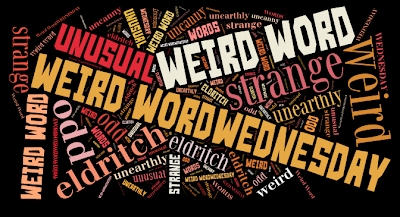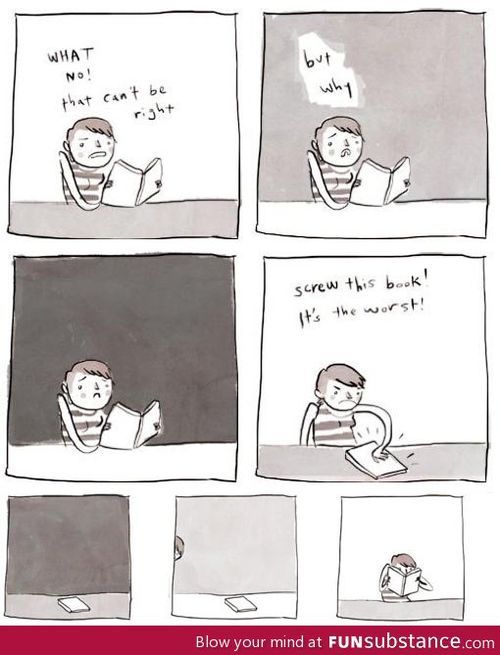Mac Barnett is the author of fifteen books for children. He was the executive director of 826LA, a nonprofit writing center, and founded the Echo Park Time Travel Mart, a convenience store for time travelers. In this talk about creativity and wonder, he explains why kids are the ideal readers of literary fiction -- and what adults can learn from them about imagination and the willing suspension of disbelief.
Perhaps there is some sort of secret homing instinct in books that brings them to their perfect readers -schaffer/barrows

Thursday, January 29, 2015
Why a Good Book is a Secret Door
Mac Barnett is the author of fifteen books for children. He was the executive director of 826LA, a nonprofit writing center, and founded the Echo Park Time Travel Mart, a convenience store for time travelers. In this talk about creativity and wonder, he explains why kids are the ideal readers of literary fiction -- and what adults can learn from them about imagination and the willing suspension of disbelief.
Labels:
books,
children,
children's books,
creativity,
Mac Barnett,
picture books,
TED talks
Wednesday, January 28, 2015
wEIRD wORD wEDNESDAY
IDIOMS: Nothing to Sneeze At
Example: He won the silver medal, not the gold. That's nothing to sneeze at.
Meaning: Not small or unimportant; something to be taken seriously.
Origin: In the early 1800s people were already using this saying. Perhaps it comes from the idea of turning your nose up at something or someone to express scorn or contempt. Since sneezes come from your nose, something that's "not to be sneezed at" should be treated as important and worthy.
Source: Scholastic dictionary of idioms: over 600 sayings, phrases and expressions / Marvin Terban. 1996.
Labels:
idioms,
vocabulary,
weird word Wednesday,
words
Tuesday, January 27, 2015
Bear on the Homefront by Stephanie Innes & Harry Endrulat
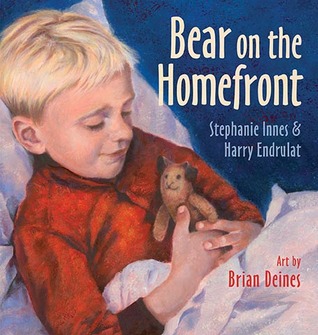 During World War II, 10,000 children from British cities were sent to live with host families in Canada, the United States, and other nations away from the war zone. Bear on the Homefront tells the story of two guest children, Grace and William Chambers, who arrive in Halifax and meet Aileen Rogers, a nurse serving on the homefront. With her is Teddy, the stuffed bear whose real-life trip to the front lines of World War I and back was chronicled in A Bear in War.Using archival images and Aileen Rogers’ wartime diary, Stephanie Innes and Harry Endrulat piece together William and Grace’s journey by train to their host family’s Winnipeg farm. Readers experience the story through Teddy’s eyes as Aileen, seeing William’s anxiety, lets her stuffed friend stay with the little boy throughout the train ride and, ultimately, throughout the war. Brian Deines’ soulful oil paintings capture the spirit of the war years on the homefront. His expressive art communicates both the loneliness of children separated from their families and the joyful conclusion when Grace, William, and Teddy all return to their homes again.
During World War II, 10,000 children from British cities were sent to live with host families in Canada, the United States, and other nations away from the war zone. Bear on the Homefront tells the story of two guest children, Grace and William Chambers, who arrive in Halifax and meet Aileen Rogers, a nurse serving on the homefront. With her is Teddy, the stuffed bear whose real-life trip to the front lines of World War I and back was chronicled in A Bear in War.Using archival images and Aileen Rogers’ wartime diary, Stephanie Innes and Harry Endrulat piece together William and Grace’s journey by train to their host family’s Winnipeg farm. Readers experience the story through Teddy’s eyes as Aileen, seeing William’s anxiety, lets her stuffed friend stay with the little boy throughout the train ride and, ultimately, throughout the war. Brian Deines’ soulful oil paintings capture the spirit of the war years on the homefront. His expressive art communicates both the loneliness of children separated from their families and the joyful conclusion when Grace, William, and Teddy all return to their homes again. A sweet book that centers on how two children, Grace and William, feel being so far from home and all they know. This story will be great for Remembrance Day, especially for younger grades where stories of war may be to dark for some. I can also see this as being a good book for anyone who is in a new place or situation and unsure of what lies ahead. Beautifully illustrated and gently told, Bear on the Homefront is a new favorite.
-------------

Check out Teddy's first adventures in WW1.
Teddy belonged to ten-year-old Aileen Rogers, whose father Lawrence left Aileen, her little brother Howard, and his wife Janet home on the family farm in Quebec when he went to war. Janet and Lawrence exchanged more than 200 letters during his service. Aileen and Howard also wrote their dad -- and Aileen sent her beloved Teddy overseas to help protect him. Sadly, Lawrence died at the battle of Passchendaele. In 2002, his granddaughter Roberta Innes found Teddy and the letters in an old family briefcase. Her findings uncovered how a Canadian family's strength was tested by war and how a small stuffed bear became an enduring memento of their love.
Monday, January 26, 2015
Friday, January 23, 2015
How are YOU Celebrating on January 27th?
Family Literacy Day 2015
When is it?
Tuesday, January 27th, 2015
What is it?
"a national awareness initiative created by ABC Life Literacy Canada in 1999, and held annually to raise awareness of the importance of reading and engaging in other literacy-related activities as a family."
By reading, talking, drawing and playing with children you are helping them develop skills they will use forever.
How do I participate?
Check your school and public library for ready made activities and programs. Sign up for one (or more).
Host your own event. Invite family and friends or enjoy with those already in your household. Activities can range from fundraisers, book drives and children’s reading circles, to literacy-themed games, anything you can think of!
Ideas For School Libraries:
Ideas For Home:
You don’t have to participate in a formal event to be a part of this initiative. Family Literacy Day can be celebrated by simply setting aside 15 minutes of family time to do an activity together.
When is it?
Tuesday, January 27th, 2015
What is it?
"a national awareness initiative created by ABC Life Literacy Canada in 1999, and held annually to raise awareness of the importance of reading and engaging in other literacy-related activities as a family."
By reading, talking, drawing and playing with children you are helping them develop skills they will use forever.
How do I participate?
Check your school and public library for ready made activities and programs. Sign up for one (or more).
Host your own event. Invite family and friends or enjoy with those already in your household. Activities can range from fundraisers, book drives and children’s reading circles, to literacy-themed games, anything you can think of!
Ideas For School Libraries:
- Ask families to send a "selfie" of themselves engaged in a literary activity ~ reading the newspaper, playing Scrabble, etc.
- Host a dress up day where primary kids dress up as their favorite BOOK character - a sort of Halloween for books.
- Host a family reading time. Invite parents in to read with their children. Try pairing it with juice and muffins before school or during nutrition/lunch breaks.
Ideas For Home:
You don’t have to participate in a formal event to be a part of this initiative. Family Literacy Day can be celebrated by simply setting aside 15 minutes of family time to do an activity together.
- Read together
- Listen to a book on CD
- Write a letter. Write a round-robin story.
- Play word games such as crosswords, Boggle, Scrabble or other brainteasers
 |
| via bilingualmonkeys.com |
- Cook together using a recipe and following the steps as a team; write down step by step preparations for a favorite family meal.
- Have children read to the cat or dog. Animals are great reading companions especially for children who may not be strong readers. They don't correct or get impatient with your children reading style.
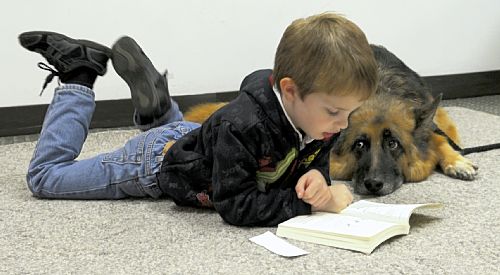 |
| post-gazette.com |
Thursday, January 22, 2015
Writer's Room @ the library .. a Place for Wordsmiths
excerpts from the cbc.com article: Toronto Reference Library adds dedicated room for writers (Jan 22, 2015)
Writers can apply to use the space for up to 3 months. Outfitted with power plugs, free internet, access to the library for research and a place to keep all the books and materials they require, it is also quiet and free from life's distractions.
"Any writer, published or not, can apply to use the Reference Library's Writers' Room for a three-month period with an option to renew, depending on availability. Booking the room requires a library card and the room is only available during the Reference Library's opening hours."
 |
| Writers' Room at the Toronto Reference Library |
'This will give writers wandering from coffee shop to coffee shop a place where they can be'- Robert Rotenberg, novelist and lawyer, on the Reference Library's new Writers' Room
Writers can apply to use the space for up to 3 months. Outfitted with power plugs, free internet, access to the library for research and a place to keep all the books and materials they require, it is also quiet and free from life's distractions.
"Any writer, published or not, can apply to use the Reference Library's Writers' Room for a three-month period with an option to renew, depending on availability. Booking the room requires a library card and the room is only available during the Reference Library's opening hours."
Labels:
Toronto Public Library,
workspace,
Writer's Room,
writers
Wednesday, January 21, 2015
wEIRD wORD wEDNESDAY
IDIOMS: Head Honcho
Example: You had better do what the Head Honcho tells you to do if you want to keep your job.
Meaning: the person in charge, the chief,boss, leader.
Origin: The Japanese word "hanchu" means 'squad leader'(han=squad, chu=chief). During the Korean War (1950-1953), American soldiers changed the spelling to honcho, and added "head" probably because head honcho made a catchy phrase. Today a head honcho is the principal of a school, the owner of a business, or anyone in charge.
Source: Scholastic dictionary of idioms: over 600 sayings, phrases and expressions / Marvin Terban. 1996.
Labels:
idioms,
vocabulary,
weird word Wednesday,
words
Tuesday, January 20, 2015
A Semester in the Life of a Garbage Bag by Gordon Korman
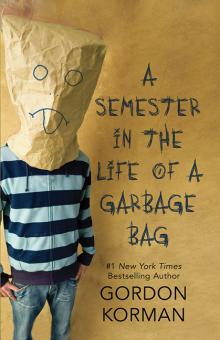 Sean Delancey, high school basketball star, is just an ordinary, popular guy...until he meets eccentric Raymond Jardine, a boy with absolutely no luck. The two are partnered for a poetry project, later joined by beautiful new student, Ashley. Although reluctant at first, Sean is drawn into Raymond's wacky scheme to secure a spot on the school-sponsored trip to Theamelpos, the fabulous Greek island that grants good luck to everyone who visits it. Soon the boys are contending with planning a school Halloween party, creating a fake hockey team, and resurrecting a long dead poet, and managing T.V. appearances. Through his friendship with Raymond, Sean learns to value individuality and independent thinking. And in the book's hilarious climax, it is Sean himself who engineers the showdown between the student body and SACGEN, the Principal's pet project, which is a virtually useless Solar/Air Current Generating Machine that supposedly powers the high school!
Sean Delancey, high school basketball star, is just an ordinary, popular guy...until he meets eccentric Raymond Jardine, a boy with absolutely no luck. The two are partnered for a poetry project, later joined by beautiful new student, Ashley. Although reluctant at first, Sean is drawn into Raymond's wacky scheme to secure a spot on the school-sponsored trip to Theamelpos, the fabulous Greek island that grants good luck to everyone who visits it. Soon the boys are contending with planning a school Halloween party, creating a fake hockey team, and resurrecting a long dead poet, and managing T.V. appearances. Through his friendship with Raymond, Sean learns to value individuality and independent thinking. And in the book's hilarious climax, it is Sean himself who engineers the showdown between the student body and SACGEN, the Principal's pet project, which is a virtually useless Solar/Air Current Generating Machine that supposedly powers the high school!I was surprised just how much I enjoyed this book! A laugh out loud romp through one misadventure after another. The excellent pacing and dialogue are near perfect. Korman gifts readers with likable characters from the heroes Sean and Raymond, to the surprising gem that is Gramps a.k.a. Gunhold and on to the supporting cast of students and friends. This entertaining read is the best I have read from Korman and I can' believe it has taken me this long to discover it. Enjoyable from page 1, the fully rounded and often quirky characters will grab the reader and have them cheering for Jardine and the reluctant Sean. Favorite moments include Jardine's conversations with the ever present "them" while referring to himself in the third person. the schemes that Sean and Jardine come up with,often on the fly, and Howard's legendary poker games and hatred of the SACGEN project. Written in 1985, it was given an updated cover that is sure to bring in the next generation of readers.
Monday, January 19, 2015
Wednesday, January 14, 2015
wEIRD wORD wEDNESDAY
Dulcet: sweet, sugary
Forbearance: withholding a reaction to provocation
Forbearance: withholding a reaction to provocation
Ebullience: bubbling enthusiasm
Labels:
definitions,
vocabulary,
weird word Wednesday
Tuesday, January 13, 2015
Monday, January 12, 2015
Wednesday, January 7, 2015
wEIRD wORD wEDNESDAY
IDIOMS: Let the Cat out of the Bag
Example: Carol's little brother the cat out of the bag about her surprise party.
Meaning: to give away a secret.
Origin: Centuries ago in England you might have bought a costly pig at a farmer's market. But if the merchant was dishonest and put a worthless cat into the bag instead of a piglet, you might not find out until you got home and let the cat out of the bag.
Source: Scholastic dictionary of idioms: over 600 sayings, phrases and expressions / Marvin Terban. 1996.
Labels:
idioms,
vocabulary,
weird word Wednesday,
words
Tuesday, January 6, 2015
Why Librarians Remain Essential to Our Schools
Sense and Sensibility: Why Librarians Remain Essential to Our Schools
Note from Absent librarian:
While Williams is speaking specifically about Librarians, I would read this article as being about all trained school library staff. Already many school boards have made modifications in staffing which have resulted in the historical Librarian position being tasked by Teachers with no library training, Library Technicians, Technology Teachers and combinations of the these. My school board has few full-time Teacher-Librarians and no longer requires specific training in Library Studies to obtain the position. I personally work as part of a library team in 8 separate elementary schools. Removing or further limiting the roles of the Librarian, Library Technician or I.T. Teacher limits the availability of current and relevant resources and the ability to access, evaluate and use any resources.
Re-Posted article by education activist, professor and author Yohuru Williams from his Huffington Post article of 01/02/2015

In the broad constellation of professionals who make up public schools, it is important to pause and acknowledge the forgotten education professionals who aide and support teachers. These include the librarians, nurses, social workers, learning specialists, and guidance counselors. [Absent Librarian edit: I would include technical support staff in this as well, including Library Technicians and I.T. personnel.] They contribute to the growth and development of our young people but often find themselves left out of broader discussions about the preservation of public education. They provide a range of critical support and intervention frequently invisible to us. Most certainly, their value has escaped the notice of so-called education reformers and politicians. All too often, these champions of a "new order" have taken aim at the forgotten teachers in their ever-expanding quest to cut public school funding.
To be clear, budget and personnel cuts have hurt the profession across the board. However, professionals in these areas bear greater risk, given widespread misperceptions about the essential services they provide that remain vital to public schools. As a youngster, for instance, I benefitted from the expertise of a speech pathologist in helping me overcome a minor speech impediment. Having the problem addressed early in my education boosted my self-esteem and ended years of torment at the hands of insensitive friends and classmates. I would not have understood this as a significant moment of formation in my academic and personal growth if not for countless recent news stories about proposed cuts to these position in school districts across the country.
Another equally hard hit position is that of the school librarian. Fifty years ago, it was inconceivable to imagine schools without appropriate library resources and the personnel to staff them. The disparity in library facilities, for instance, helped civil rights attorneys demonstrate the inherent inequality in segregated schools. With the advent of the internet and digital resources in particular, the flawed assumption surfaced that these positions are no longer necessary. Librarians remain important conduits for student support in ways that many might be surprised to learn. Contrary to popular perception, librarians do more than curate collections of dusty books; they teach critical research skills and often serve as the first destination for young people on the road to quality research.
Librarians know best that research in the digital landscape is often more difficult to manage and navigate unless students receive the proper guidance and training. As a former high school history teacher, I was keenly aware of our library staff as a critical part of the instructional team. This remains equally true as a college professor. Although not always regarded as "teaching" in the conventional sense, the ways in which librarians assist students may in fact be one of the most authentic forms of instruction. Working with students on projects generated by their unique interests, librarians help students to unlock and decode the vast amount of information now at their fingertips.
A well-documented pool of research indicating the impact of librarians on student achievement exists. A 2011 Pennsylvania School Library Study, for example, found that school library programs most meaningfully affected students at risk. The same study determined that poor, minority students with learning challenges were at least twice as likely to earn "Advanced" writing scores when they had access to full-time librarians as those without access to full-time librarians.
In spite of this research, school libraries and librarians remain at risk. Last February, the Los Angeles Times determined that "About half of the 600 elementary and middle school libraries" in the city were "without librarians or aides denying tens of thousands of students regular access to nearly $100 million worth of books, according to district data." Unfortunately, we can only expect those numbers to grow in 2015 without a concerted effort to restore library budgets and correct misconceptions about the important role played by library professionals.
In the final analysis as the work done by speech pathologists and librarians illustrate, public school instruction extends beyond what happens in the classroom to other areas where highly specialized and dedicated professionals assist student achievement on a variety of levels. They also reinforce the notion of education as a humanistic rather than a commercial enterprise that requires a respect for the individuals who serve. As the late Jesuit educator Timothy Healy, former President of Georgetown University and the New York Public Library once observed, "The most important asset of any library goes home at night -- the library staff."
Unless lawmakers can be made to understand the critical role these and other educational professionals play in contributing to schools in which we can all be confident and proud, then many of these positions will remain in jeopardy to the detriment of the students and communities they serve.
To be clear, budget and personnel cuts have hurt the profession across the board. However, professionals in these areas bear greater risk, given widespread misperceptions about the essential services they provide that remain vital to public schools. As a youngster, for instance, I benefitted from the expertise of a speech pathologist in helping me overcome a minor speech impediment. Having the problem addressed early in my education boosted my self-esteem and ended years of torment at the hands of insensitive friends and classmates. I would not have understood this as a significant moment of formation in my academic and personal growth if not for countless recent news stories about proposed cuts to these position in school districts across the country.
Another equally hard hit position is that of the school librarian. Fifty years ago, it was inconceivable to imagine schools without appropriate library resources and the personnel to staff them. The disparity in library facilities, for instance, helped civil rights attorneys demonstrate the inherent inequality in segregated schools. With the advent of the internet and digital resources in particular, the flawed assumption surfaced that these positions are no longer necessary. Librarians remain important conduits for student support in ways that many might be surprised to learn. Contrary to popular perception, librarians do more than curate collections of dusty books; they teach critical research skills and often serve as the first destination for young people on the road to quality research.
Librarians know best that research in the digital landscape is often more difficult to manage and navigate unless students receive the proper guidance and training. As a former high school history teacher, I was keenly aware of our library staff as a critical part of the instructional team. This remains equally true as a college professor. Although not always regarded as "teaching" in the conventional sense, the ways in which librarians assist students may in fact be one of the most authentic forms of instruction. Working with students on projects generated by their unique interests, librarians help students to unlock and decode the vast amount of information now at their fingertips.
A well-documented pool of research indicating the impact of librarians on student achievement exists. A 2011 Pennsylvania School Library Study, for example, found that school library programs most meaningfully affected students at risk. The same study determined that poor, minority students with learning challenges were at least twice as likely to earn "Advanced" writing scores when they had access to full-time librarians as those without access to full-time librarians.
In spite of this research, school libraries and librarians remain at risk. Last February, the Los Angeles Times determined that "About half of the 600 elementary and middle school libraries" in the city were "without librarians or aides denying tens of thousands of students regular access to nearly $100 million worth of books, according to district data." Unfortunately, we can only expect those numbers to grow in 2015 without a concerted effort to restore library budgets and correct misconceptions about the important role played by library professionals.
In the final analysis as the work done by speech pathologists and librarians illustrate, public school instruction extends beyond what happens in the classroom to other areas where highly specialized and dedicated professionals assist student achievement on a variety of levels. They also reinforce the notion of education as a humanistic rather than a commercial enterprise that requires a respect for the individuals who serve. As the late Jesuit educator Timothy Healy, former President of Georgetown University and the New York Public Library once observed, "The most important asset of any library goes home at night -- the library staff."
Unless lawmakers can be made to understand the critical role these and other educational professionals play in contributing to schools in which we can all be confident and proud, then many of these positions will remain in jeopardy to the detriment of the students and communities they serve.
Monday, January 5, 2015
Subscribe to:
Comments (Atom)
